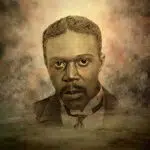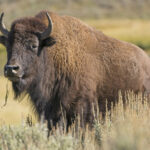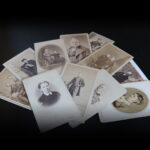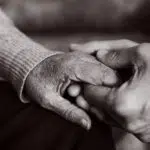History of National Author's Day
The renowned French philosopher, Michel Foucault, once asked, “What is an author?” He argued that the idea of authorship — of accrediting the work to a single individual — has deep effects on its interpretation by the reader. Further, heady, philosophical arguments ensued but the bottom line remains — authors are creators, through and through.
They are, more or less, the ones who have written novels, poems, graphic novels, textbooks, and so much more. From William Shakespeare being the most famous of authors (and, debatably, a number of authors operating under one pen name), back in the 1500s, enthralling and satirizing royalty and common people in ways that still resonate today; all the way to J.K. Rowling and Stephen King, who can create both fantastical and horrifying worlds and landscapes that allow us to reflect and provide insight on our own more mundane realities.
Regardless of what time period or where they’re from, authors have always had the ability to teach, entertain, and move us – even back to old, blind Homer, telling his “Odyssey” without even writing it down.
That brings us back to Foucault’s question. Homer never actually wrote a word. He recited his poems aloud to whoever would listen and, as he gained followers, they committed his words to paper. Yet history has forgotten the writers and gifted us Homer as the author of the “Iliad” and the “Odyssey”.
So what is an author? Well, historically and permanently, it’s someone who uses their words to move their followers. Writers conduct in-depth research and, in many cases, spend years perfecting what we eventually read. That’s years of drafting, editing, revising, and rewriting these stories that captivate us. They deserve all the thanks we can offer.
In 1928, the president of the Illinois Women’s Club, Nellie Verne Burt McPherson, came up with the idea to create a day that recognized American authors. She was an educator and quite an avid reader. The inspiration for the holiday came while she was in the hospital during the First World War. She had just read Irving Bacheller’s “Eben Holden’s Last Day A-Fishing” and sent a letter to him expressing her love for the book.
After receiving the letter, he responded by forwarding a signed copy of another one of his stories to her. McPherson, overwhelmed by his generosity, thought of a way to repay the gesture. She concluded that a National day for authors would do the trick and presented the idea to the Generation Federation of Women’s Clubs. The club approved, and in May 1929, issued an endorsement to celebrate American Authors on National Author’s Day.
The U.S. Department of Commerce acknowledged National Author’s Day in 1949. Although it took 20 years, McPherson’s vision finally became a reality and the holiday has been celebrated across the country every year since.
McPherson’s granddaughter, Sue Cole, took on the responsibility of promoting the holiday when her grandmother passed away in 1968. She urges people to send appreciation notes to their favorite authors to celebrate their contributions towards making life easier. The idea is to recognize all the people who have contributed to American literature.
























































































